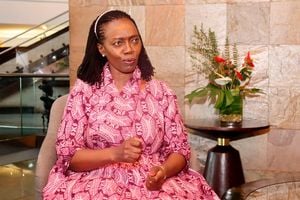Motorsports needs help
What you need to know:
- Only nine crews competed in the opening round of KNRC series in Eldoret.
- KMSF and KNRC officials would be to aggressively market the local series.
Kenya Motor Sport Federation (KMSF) and stakeholders in the local motorsport scene must have a candid discussion on how to revive interest in the sport.
Cancellation of most competitions in the Kenya National Rally Championships (KNRC) series, and withdrawal of top drivers in major rounds of the series should be cause for worry.
Severe budgetary constraints, low entries and disagreement over competition rules are some of the challenges drivers and organisers of the events in the KNRC series have been facing for some time now.
It has led to a big drop in the number of crews registering for competitions as most prefer to keep their competition cars at home.
More than 50 KMSF licence holders, including the 2022 KNRC series winner Karen Patel, current series leader Carl Tundo, and top drivers Issa Mwari and Hamza Anwar, skipped the ongoing Nanyuki Rally, which is the third leg of the KNRC series.
Sound management
That only nine crews out of a possible 25 are competing in Nanyuki speaks volumes about the status of rallying in Kenya. It represents a massive drop from 2014 when the event attracted 45 drivers.
Similarly, only nine crews competed in the opening round of KNRC series held in Eldoret in February.
The solution lies in making the sport attractive to sponsors, and sound management of the sport.
Perhaps, a good starting point for KMSF and KNRC officials would be to aggressively market the local series, and to seek partnerships for the benefit of crews.
Another solution could be for KNRC to allow a degree of flexibility in competition rules without necessarily watering down the quality of the competition.
Organisers of competitions should uphold safety of all participants, but they should strike out punitive competition rules that discourage new drivers from taking up the sport.





